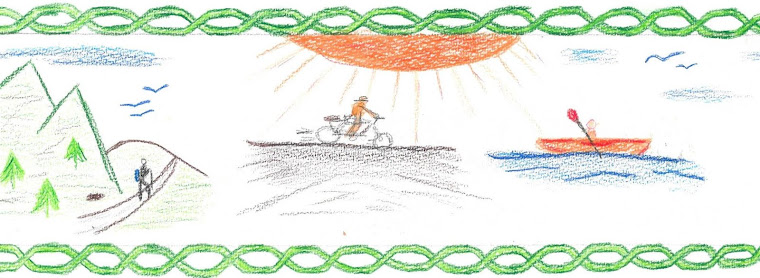I
first heard about and experienced Shavers Fork river nearly forty years ago when I was a freshman at Davis and Elkins College, as the river's course takes it not far from campus, but I never visited it's higher elevations or camped along it until eight or nine years ago, and then just two days and a night. Recently, however,
I camped alongside it at an even higher elevation four days and three nights.
The
headwaters of Shavers Fork are located at over 4,000 in Pocahontas County near
Snowshoe Ski Resort, making it, at its headwaters, the highest river in the
Eastern United States. Its over 88 miles
of flow take it through Randolph and Tucker Counties until it merges with the
Black Fork at Parsons to form the Cheat River. Draining a watershed of over 200
square miles that is more than 97% forested and mostly within the Monongahela
National Forest, Shavers Fork is one of West Virginia’s renowned trout streams. The area I camped in at 3,300 feet was within
the Shavers Fork Area of the Greenbrier Ranger District of the Monongahela
National Forest, an area inhabited by very few people but a couple hundred
bears.
Camping
with a friend I hiked, backpacked, caved and rappelled with as a teenager, we late
Thursday. Soon after we arrived it
started to rain so we quickly pitched a 10 x 10 tarp, set up our camp chairs,
and hunkered down until the rain stopped a few hours later. Once the rain abated and the sun came out we
pitched our separate tents and organized our camp.
We
crawled out of our tents Friday morning around 6 AM. After a leisurely breakfast we set off around
9 AM intending to explore the area. We hiked
upstream for half a mile following an abandoned trail that paralleled the
river. Several blow down areas, fallen trees, and boggy spots slowed our
progress but eventually we reached a junction with the Whitmeadow Ridge Trail,
which led us to a Forest Road, but not before I caught sight of a small bear or
large cub crossing the trail about thirty yards in front of us.
We
followed the Forest Road a hundred yards or so down to Shavers Fork were we
were greeted by one of the most picturesque settings that I have seen in a long
time. The nearly cloudless deep blue sky
and bright shining sun seem to electrify the surrounding forest mountainsides
and swiftly flowing shallow water. A long and narrow rocky sand bar, punctuated
with vibrant green grass, allowed us to walk nearly out into the river’s center,
offering unobstructed views upstream, downstream, and of the sky above. The scene was sublime.
After
briefly exploring the area we retraced our steps on the Whitmeadow Ridge Trail but
rather than taking the abandoned trail back to our camp we followed the Whitmeadow
Ridge Trail up the mountainside, gaining nearly 700 vertical feet in about four
miles of hiking. Reaching a Forest Road at the crest of Cheat Mountain we
followed roads another five miles back to our camp. Altogether we had hiked 12.4 miles and did
not a single individual other than a few cars that passed us along the road
section of our hike.
We
took our time preparing Sunday breakfast and eventually broke camp late morning,
leaving the unofficial but established campsite cleaner and in many ways better
than we had found it. We took nothing
home with us other than memories of beautiful surroundings, two clear nights
filled with stars, a clear running mountain river, and countless rhododendrons still
waiting to bloom. By camping four days and three nights on the banks of Shavers
Fork and hiking in the area my soul and spirit had been refreshed and fed.
